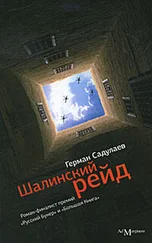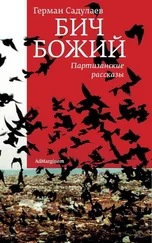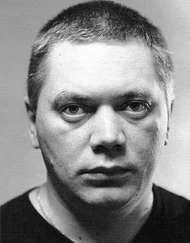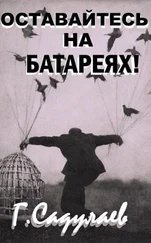At that point the Prince of Darkness, drained of all hope, dissolved into a pale gray haze that looked like bus exhaust, and wafted southward in the direction of Moscow.
Literary critics had unanimously identified my latest novel as the most insignificant and forgettable book of the year. Most bookstores don’t carry it. Sales experts, following some tyrannical inner voice that they call “the dictates of the market”—though we know that the market has nothing to do with it—loaded the shelves with row upon row of copies of a single book by a different author, which had become a surprise bestseller. They even colonized the bookstore windows, piling up a million more copies in huge stacks that spill over onto the sills.
Verily, vanity of vanities, the things of this earth.
Thus did I twice shame the Enemy of the human race and save my eternal soul.
My name is Maximus. Not Maxim, not Max, but Maximus; you can check my passport and driver’s license. I owe the name to my uncle, or rather, to his work buddies, who had marked some milestone in his employment by giving him an old book on the history of Ancient Rome just before I was born. Some random Roman emperor’s or general’s name came up, and my uncle, who was also my godfather, bestowed it upon me. Could have been worse. I’m eternally grateful to my godfather for not choosing one of those other names the Romans were so fond of, the ones that have both masculine and feminine equivalents in Russian. Like Valerian, Valentinian, Julius, or Claudius. It’s scary to think how many schoolmates I would have had to massacre during their tender childhood years for calling me girly names like Valka or Claudia behind my back.
My ancestors acquired the surname Semipyatnitsky during the years of serfdom. Don’t believe people with names like Sokolovsky, Tarasovsky, Dubovitsky, or Lebedinsky when they try to claim noble birth. On the contrary. That elegant “-sky” suffix usually marks the descendents of lowly peasants with no status whatsoever, who didn’t even know who their parents were, much less their ancestors, and accordingly were listed in the census under their master’s name: “Who do you boys belong to?” “We’re Colonel Ordyntsev’s chattel.”
What’s known for a fact is that my ancestor, the potent patriarch and founder of the family line, was a stableman on an estate in Saratov province, a carouser and cardsharp whose unreliable character had earned him the nickname Seven Fridays—for him, every day was the beginning of the weekend. It’s also known that my ancestors weren’t Russian, and might have been of Tatar blood. My father’s name is Raul Emilievich. So my full name is Maximus Raulevich Semipyatnitsky. No one uses my patronymic, though; as is said in such cases, I have not earned it.
Our distant relatives bear the name Saifiddulin. Raul and Émile are French names, as far as I can tell, but though it might seem strange to you, they’re extremely popular among Russian Tatars. This supports my family’s hypothesis about the Tatar blood.
But there’s another story as well, a beautiful legend. Through the ages, generations of Semipyatnitskys have passed down the tale that our family originated not in a Tatar tribe—though my forefathers must have come into close contact with Tatars as a matter of course, as neighbors in the Turkish world—but rather in ancient Khazaria, which at one time was a great power, and which vanished, like Atlantis, in the currents of history. It’s even said that our family was related to the Great Khagan.
I don’t know how much of this legend is true and how much of it is just inspiring nonsense that my ancestors made up to boost their morale in their demeaning and dependent social position. But whether there’s some kind of genetic memory at work, or whether all these tall tales have just seeped into my subconscious, for whatever reason, I’m sometimes visited by strange dreams. Last night, for example.
Once upon a time, in the glorious city of Itil, which stands on the River Volga, in the capital city of the Khazar Tsar-Khagan, there lived a herdsman of horses, the younger son of a man named Nattukh, Saat by name. This is no epic tale; there was nothing heroic about Saat; he was just an ordinary man living an ordinary life. He pastured his mares on the steppe, carried foals in his arms, shoveled manure, and hauled it from the corrals. Of course a poor herdsman like Saat wouldn’t live in Itil itself; a square sazhen of land an arrow’s flight from the Khagan’s palace cost way more than he could afford: five weights of silver. No, he lived far away, at the very edge of the steppe. And that is as it should be: Where can you find space to graze your mares in Itil? Half the time you can’t even find an open hitching post. Horsemen wander the streets, searching among the stone houses, but the posts are all being used, there’s not a single free one to toss your reins over! The steppe, though, is a land of plenty: feather grass and wind. Saat’s tent was tattered, draughty, and full of holes. But he did not lose spirit. On a summer night, the stars would shine their way through the rips in his tent roof; their rays caressed and warmed him.
But Saat had no one, only starlight, to caress and warm him. He was lonely. He did not crave gold or silver; it wasn’t a big stone mansion he wanted, not glory and fame; his only desire was to have a black-haired maiden by his side, a girl with hazel eyes, a bosom like a young mare’s udder, and gentle sloping withers. Long did he crave a wife!
But then that desire, too, passed.
And after that Saat had the perfect life.
Itil held no appeal for Saat; Saat forgot Itil. Even the tax collector forsook the path to Saat’s tent. When a man lacks a wife and worldly wealth, when he doesn’t go to the bazaar or to the bathhouse to gossip; when he doesn’t inhale the dust at the Khagan’s gate, it is as though he doesn’t exist; he is invisible. And free.
Sometimes Saat would think: Great is the Khagan, glory to him and victory over all his foes, what use to him is a poor herdsman and his mares? How can the Khagan, blessed be his name under the moon and sun, be mindful of all the herdsmen in the boundless steppe? Send troops into battle, gather in the taxes, array concubines on thick woolen carpets, manage the affairs of state! And the herdsman, for his part, what need has he of the Khagan? The bay mare has foaled, the milk in the burdiuk has fermented wrong and turned all clotty, and yesterday the wolves howled all night long, what if they attack the horses? The Khagan and the herdsman lead separate lives. And so be it.
But every year there was a marvelous and strange occurrence. On the second moonless night after the day when light and dark fell in equal measure upon the spring grass, Saat would rise with the dawn; he wasn’t quite awake, but sort of still sleeping, sleepwalking. He would take up his kizil- wood staff and set forth in the fog, in the direction of Itil.
If he had been able to see, he would have realized that he was not alone. From all over the steppe, men walked, swaying blankly from side to side in their tattered beshmets . Eyes open, but dreaming. Falling down, bumping into, or even trampling one another. But pressing inexorably forward, onward, like a swarm of ants crossing a ford.
For once a year all of Khazaria is called upon to vow for the Khagan and to elect the Great Kurultai.
So here comes Saat, making his way across the steppe, and his head feeling like a buzzing beehive, but divided into different chambers, each swarming with its own political party, so not just one beehive, politically speaking, but several… peehives , if you will. And even if you won’t.
Читать дальше












